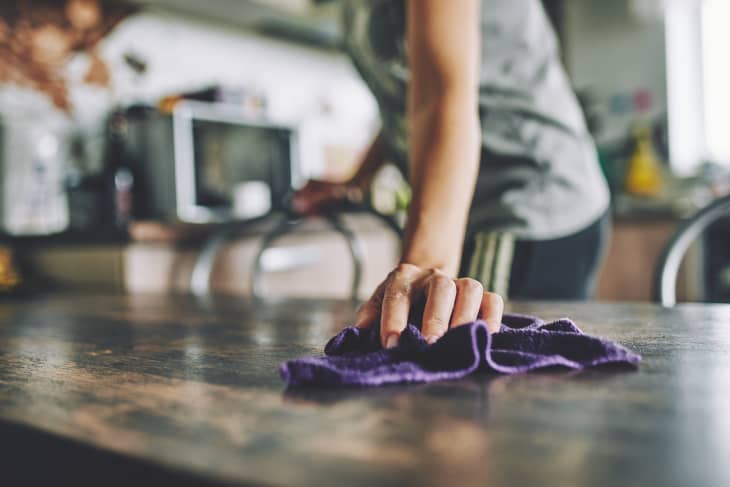How My “Procrastination Cleaning” Ritual Relieves Stress

When I was in college, the kitchen in our off-campus housing was never cleaner than when finals week rolled around or when a big paper was due. The pattern continued years later, when I was working on another degree and I’d scrub my kitchen grout before studying for a test.
I never thought much about why I did this except to realize ruefully that I procrastinated pressing necessary tasks by cleaning (and to wryly observe that the house was cleanest when I had something else I was supposed to be doing). Maybe mixed in with these feelings was a bit of self-congratulation that others procrastinated cleaning itself, but I procrastinated by cleaning (although I’m not sure who ends up in the better situation!).
In any case, as I was digging into this a bit further recently, I came across an article in Current Biology entitled “Effects of Anxiety on Current Ritualized Behavior.” The piece discusses how “stress can result in ritualized behavior” and that “ritualization might be an anxiety-reducing coping strategy.” This sounded all too familiar to me, and the puzzle pieces began to click. Could it be that cleaning hadn’t been merely a tool to put off something unpleasant, but that I’d known intuitively that cleaning — my own “ritualized behavior” — would make me feel better?
It looks like it’s possible. In the summary of the article, the authors point out that “environmental uncertainty and uncontrollability cause psycho-physiological distress to organisms.” Facing down an anatomy test or the blinking cursor on a blank page, in my experience, certainly constituted “environmental uncertainty and uncontrollability” and I can attest that they caused “psycho-physiological distress” to this “organism” (me!).
The article goes on to explain that “a common response involves ritualization, that is, the limitation of behavioral expressions to predictable stereotypic and repetitive motor patterns … [which] serve to regain a sense of control over an uncertain situation.” My behavior of cleaning involves a set of motor patterns that result in a predictable outcome: a clean space. So my cleaning rituals, when performed under the stress that’s caused by something else in my environment, allow me to regain a sense of control over my situation. This sense of control, in turn, helps me feel more regulated. The ritual of cleaning is my own “anxiety-reducing coping strategy.”
Another way to look at this is by discussing the need to minimize entropy. The study’s authors describe that when faced with an uncontrollable/unpredictable situation, the “organism” will experience a high-entropy state and want to minimize it and “increase prediction success.” For instance, my high-entropy risk, like the paper I need to write or the test coming up, comes with low predictive abilities and therefore induces anxiety. On the other hand, engaging in a ritualistic behavior with a predictable outcome such as cleaning minimizes entropy and lowers anxiety.
Engaging in these low-entropy rituals may help you regain a feeling of control over the situation. As the article points out: “In turn, this regained sense of control might result in anxiety alleviation and, consequently, lead to better performance.”
This is huge. According to the idea purported in this study, my procrastination isn’t a harmful avoidance tactic. Rather, choosing to clean when I’m stressed seems to be an adaptive way that I’ve been lowering my entropy levels, bringing my anxiety levels down so that when I finally sit down to do that high-stakes difficult task, I can perform even better.
While I’ve done this for years without knowing it, becoming cognizant of the psychological mechanisms of what’s happening has made me view myself more kindly. I’m not doing something bad by cleaning before doing something hard; I’m lowering my anxiety levels through a “ritual” (that has the additional benefit of making my home more pleasant, it must be pointed out!) that makes me the best version of myself.